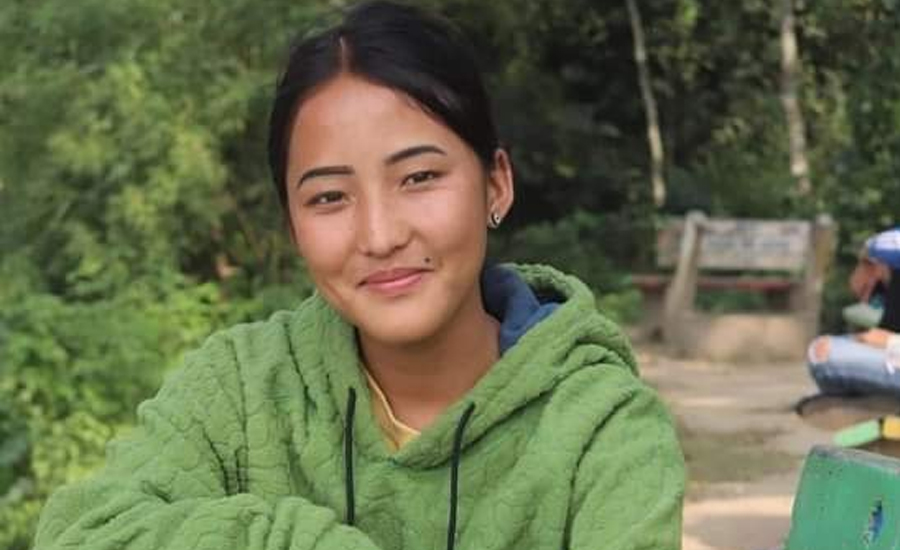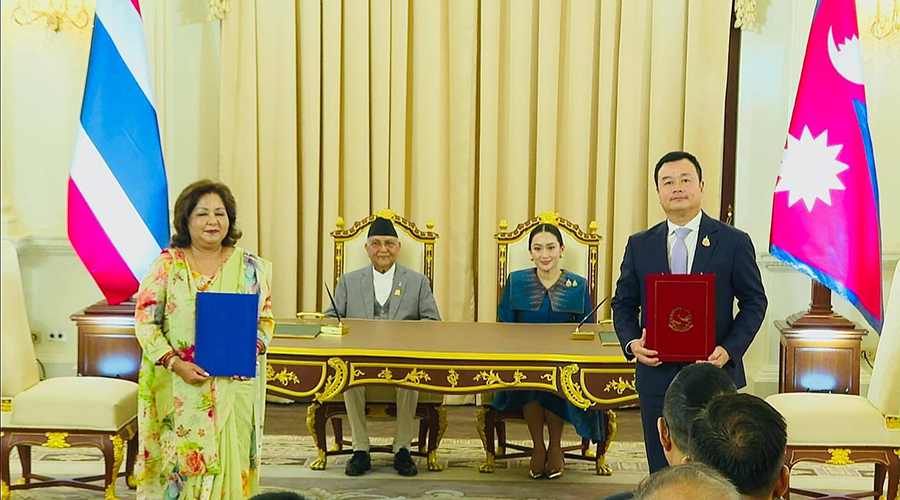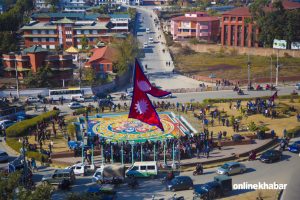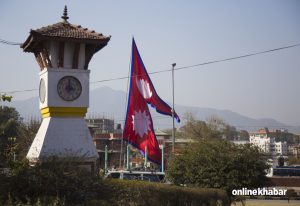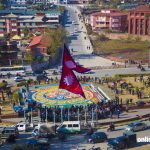When Sapana Roka Magar came to Kathmandu seven months ago, she did not have a clue about ‘corpse management’. Nor did she know what she wanted to do. She was lost, alone, and homeless.
It is safe to say that she had left her life in Baranja in Myagdi behind to start a new one in the capital, but little did she know that her life would turn the corner as it did.
The 18-year-old on Tuesday was included in BBC 100 Women 2020 as one of the most influential and inspiring women across the world for the work she has been doing in Kathmandu.
Magar, since February, has been actively involved in finding unattended bodies of the deceased and carrying out their last rites at Pashupati Aryaghat.
“I still can’t believe it,” says Magar from her home in Baranja. “When I started getting calls from friends and family, I was shocked. I had to log in to Facebook to confirm if it was true.”
It all started when Magar met social worker Binaya Jung Basnet in Kathmandu. Magar, who was homeless then, found her calling through Basnet’s organisation which had been performing final rites of unattended bodies for the past six years.
Painful past
… But, her past had not been that great.
Magar had a humble beginning in Baranja. She was studious. She says she topped her district in her SLC (the 10th-grade final exams). But, her life changed when she left for Beni for her higher studies.
In Beni, the vibrant city life distracted her from her goals. She met a guy on Facebook. At the tender age of 16, she fell in love with the boy, after which she left Beni for Butwal.
“I was an idiot back then. Very naive,” she says. “I could not differentiate between right and wrong.”
In Butwal, she got married to the guy. That union did not last for long though. Recalling those days, Magar says she does not consider that marriage and calls it a ‘horrible mistake’, one which almost crushed her and brought her to the streets.
“I had nowhere to go. I was too ashamed to return home. The streets were the only place I could go to,” she says.
Magar, who until the age of 16 had a comfortable life found it tough in the streets. What little food she had packed finished soon enough and all of a sudden, the girl whose needs were regularly fulfilled by her parents was begging for food. Her hair forgot what a comb was like and her hands and body had smeared in dirt.
“The street kids became my family. But, I liked being alone,” says Magar. “I slept a lot of nights without eating. Those were tough times.”
Back to Beni
Hunger reminded her of home. But, that was one place she did not have the courage to return. So, she kept to the streets where she says many tried taking advantage of her good nature. On the streets, she regularly blamed her karma.
“At one point, I was so frustrated that I wanted to kill myself. I tried a few times as well,” says Magar.
Frustrated by living on the streets, a homesick Magar then called her brother-in-law (her elder sister’s husband) in Beni. She told him about what had happened to her in Butwal.
“He told me to come back. I only had Rs 100 in my pocket.”
After spending three months on the streets of Butwal, Magar returned to Beni to her brother-in-law. But, she did not have the courage to go home to her parents. She was ashamed; her elopement had caused a lot of trauma to her parents; she had become a laughing stock in the village.
“People used to tell them (the parents) how I was a lost cause and that I had embarrassed them,” says Magar. “I still feel sad when I think about what I had done to those who had given me so much love in my childhood.”
Mustering up the courage, she went back home. Her fear turned into elation as soon as she saw her parents.
“I ran into their arms with tears in my eyes,” says Magar sounding emotional on the phone. “I promised them that I would not be making such a mistake ever again in my life.”
Her parents, disregarding what the society would say, took her in. They admonished her actions, but they loved her. Magar says that made her realise how big a mistake she had made.
Into Kathmandu
However, the society was not so forgiving. She became the talk of the town. Everyone was talking behind her back about how she had defamed her family.
“That made me hopeless,” she says.
But, she did not give up. She took that as a challenge. She wanted to make things right. She wanted to prove to people that she was not a lost cause, so she joined Ratna Higher Secondary School. But, her parents told her that she would be better off away from the village and sent her to Pokhara.
“I used to take tuition classes at Galaxy International College in Pokhara and whenever exams were round the corner, I used to return home to give exams.”
She passed her 12th-grade exams. Her life was getting back on track. While she was in Pokhara, she also learnt the Japanese language as she felt leaving Nepal was the right thing to do.
There she met Salina Basnet, and the two became good friends. Salina, however, left for Japan while Magar, after completing her results, came to Kathmandu.
In Kathmandu, Magar met Salina’s father Binaya Jung Basnet who gave her refuge in his home. At Binaya Jung’s home, she learnt about his organisation, Action for Social Change, and what they did.

Into the job
When Magar found out about how the organisation performed the final rites of unattended dead bodies, she was curious. She was pulled towards it.
However, Binaya Jung did not want a young teenager to be doing that. But, Magar was adamant. Looking at her stubbornness, Binaya Jung agreed.
“That moment, I felt that had I died on the streets, who would have performed my final rites? I felt that I had overcome being homeless for this day. I had found my calling.”
She went to the Tribhuvan University Teaching Hospital morgue with Binaya Jung to experience what it would be like. In a place where normal people cannot spend more than a few minutes, Magar stayed put.
“At first, it was scary. The room was dark and smelly. Looking at the unattended bodies gave me chills. But, when I saw baba (Binaya Jung) perform the final rites of people that he did not know, I knew that I wanted to do the same,” says Magar.
The first unattended body she cremated was that of a girl her age. That girl’s lifeless body reminded her of herself.
“I cried a lot that day,” she says. “It felt like I was performing my own final rites.”
Even during the Covid-19 pandemic, when the risk is high, Magar and Binaya Jung have continued their task. Magar says she has performed the final rites of over 100 bodies.
…
But since Dashain, Magar is not seen in Pashupati. She has gone home.
“We have a branch in Chitwan as well. I’d gone there during the festive period. Will return to Kathmandu soon,” she says.
The people who talked behind her back in her village have now started to appreciate her. People have started addressing her as their daughter and granddaughter. She says people put garlands over her head and have also tried to come close to her. They even celebrated her birthday.
Her philanthropic work continued in her village when she gave a family Rs 50,000 she had got from well-wishers.
“When you do something bad, even your closes family refuse to know you. But when you do something good, even those who don’t know you come close to you.”
The fame Magar has received in recent times has made her regret a lot of things she did in her past, including the one when she nearly took her life.
“I’ve learnt that dying isn’t a big deal, overcoming adversities and not giving up is.”



